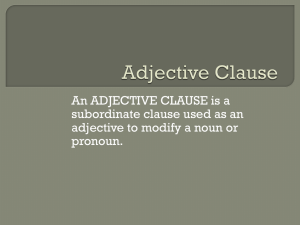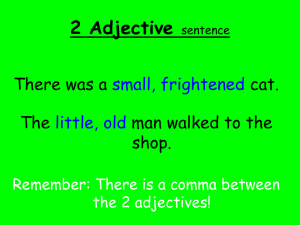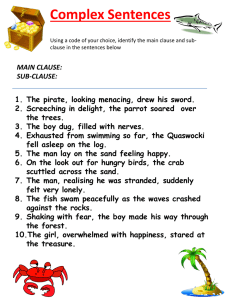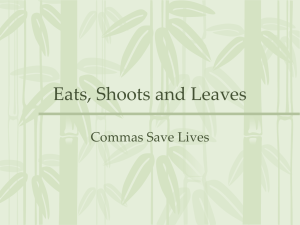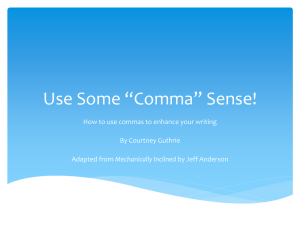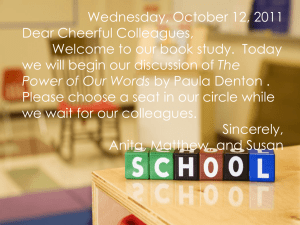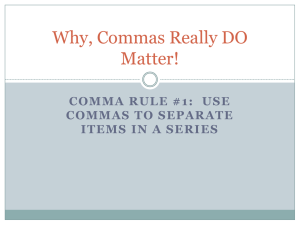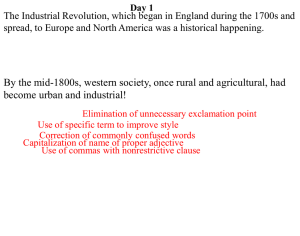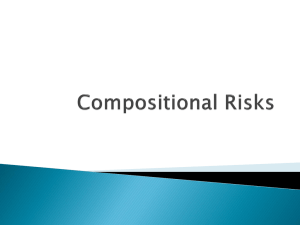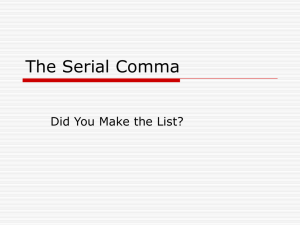Punctuation in Adjective Clauses
advertisement
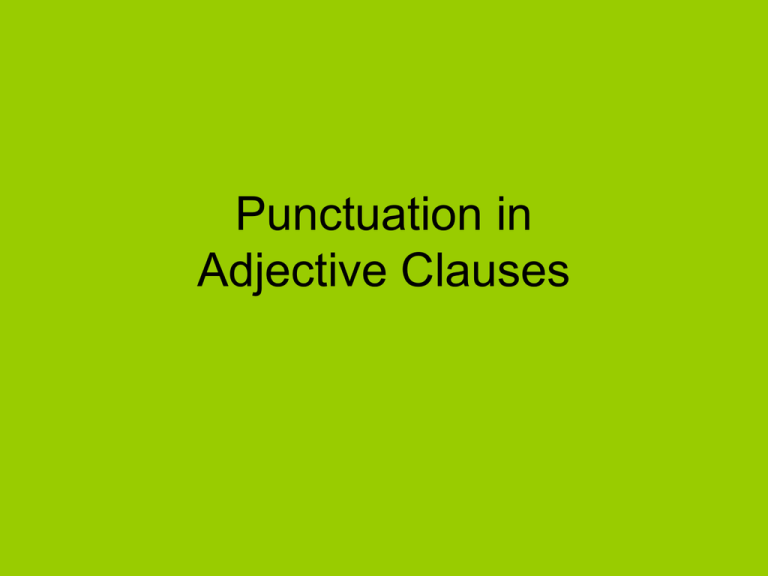
Punctuation in Adjective Clauses Read the sentence; then, decide if the statement following is true or false • The shoes that got rained on smelled funny. – TRUE or FALSE All the shoes got rained on. • He threw away the apples, which were rotten. – TRUE or FALSE All the apples were rotten. Read the sentence; then, decide if the statement following is true or false • The books, which are on the shelf, belong to me. – TRUE or FALSE All of the books are on the shelf. • He only ate the food that I made. – TRUE or FALSE All of the food was made by me. Read the sentence; then, decide if the statement following is true or false • Her children, who live in Seattle, never come to visit. – TRUE or FALSE All of her children live in Seattle. • She sat in the chair which was near the front of the room. – TRUE or FALSE of the room. All the chairs were near the front Create definitions using the word given and the sentence that describes the word. Put them together in a complex sentence. • refresher course This class teaches you about new developments in a subject you have already studied. • lizard This reptile has rough skin, four shorts legs, and a long tail. • hyphen This punctuation mark joins words or parts of words. This person’s dreams are of something that can’t be achieved in real life. This person works to make changes to improve a government or society • idealist • reformer Create definitions using the word given and the sentence that describes the word. Put them together in a complex sentence. • refresher course This class teaches you about new developments in a subject you have already studied. – A refresher course is a class which/that teachers you about new developments in a subject you have already studied. • lizard This reptile has rough skin, four shorts legs, and a long tail. – A lizard is a reptile which/that has rough skin, four shorts legs, and a long tail • hyphen This punctuation mark joins words or parts of words. – A hyphen is a punctuation mark which/that joins words or parts of words. Create definitions using the word given and the sentence that describes the word. Put them together in a complex sentence. • idealist This person’s dreams can’t be achieved in real life. – An idealist is a person whose dreams can’t be achieved in real life. • reformer This person works to make changes to improve a government or society – A reformer is a person who/that works to make changes to improve a government or society. Decide if the sentence with an adjective clause needs commas or not. • There is only one banana left. • The banana which is bruised doesn’t look appetizing. • ADD COMMAS • The banana, which is bruised, doesn’t look appetizing. Decide if the sentence with an adjective clause needs commas or not. • There are several airplanes waiting to take off. • The airplane which is from Australia has a kangaroo painted on it. • NO COMMAS • The airplane which is from Australia has a kangaroo painted on it. Decide if the sentence with an adjective clause needs commas or not. • There are a lot of students from many classes in the hallway. • The students who are on break from the Speech class are making a lot of noise. • NO COMMAS • The students who are on break from the Speech class are making a lot of noise. Decide if the sentence with an adjective clause needs commas or not. • There is only one plane waiting to take off. • The airplane which is from Australia has a kangaroo painted on it. • ADD COMMAS • The airplane, which is from Australia, has a kangaroo painted on it. Decide if the sentence with an adjective clause needs commas or not. • There are students from one class in the hallway. • The students who are on break from the Speech class are making a lot of noise. • ADD COMMAS • The students, who are on break from the Speech class, are making a lot of noise.
